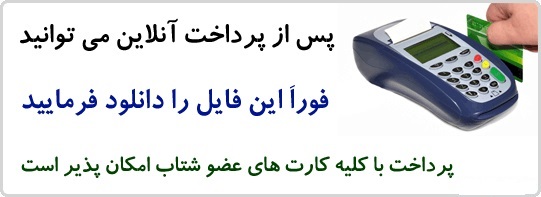لینک دانلود و خرید پایین توضیحات
فرمت فایل word و قابل ویرایش و پرینت
تعداد صفحات: 50
In other views, organizational knowledge is not merely consider as individual one. Some of knowledge exist in group for [10]. Then the knowledge which is measured or measure something should cover 2 classification of knowledge i,e implicit and explicit and group, individual and organizational one.
The second dimension of this tetragonal basis of figure 1 is types of knowledge in an organization, individual and group from implicitly and explicitly.
Figure 2: equipoised cube for measurement method the necessities for
The cubical volume of figure 2 indicates integration of tetragonal base in measurement method with types of knowledge in organization
So we have a cube of 6 types of knowledge (from the intersection of implicit and explicit knowledge with indivisual, group, organizational knowledge) that each of then must be compared in the Tetragonal of "knowledge volume" , "knowledge volue" , "knowledge interest and expenses" and "Transformation speed of knowledge".
Now we should find a knowledge management model which is capable of integrating with this cognitive tetragonal model –Nonaka-
Jakichi Model is a suitable one to reconcile with this cognitive tetragonal model and can be considered as a basis for measurement model –Nonaka- Takochi Model as a cognitive model is based on types of knowledge. Hidden and obvious information have been discussed exactly in this model. In this model indivisual, group, organizational knowledge are converted to each other in a loop form too. [11] Then ,Nonaka. Takochi Model can be delineated as measurement Model base. But it should be mentioned here that this model has a dynamic nature.[12] in dynamic Models There are several main and important indexes that separate them from static ones.[13]
dependence to time; Dynamic models depend on time and in dingle of time they show different behavior from themselves which caused by main variable of time in them.
Cause and effect relationships: Dynamic Models are composed of varied cause and effect relationships. One cause itself can the effect of other cause. So in dynamic models the beginning strip of cause and effect relation ships is not clear but the cause and effect impacts of all indexes on each other is measurable and visible.
Feedback circles: in dynamic models feedback plays the main role. Any effect can effect on its cause. The increase of effect can boots or decrease cause directly or indirection.

مقاله درباره گلکار



